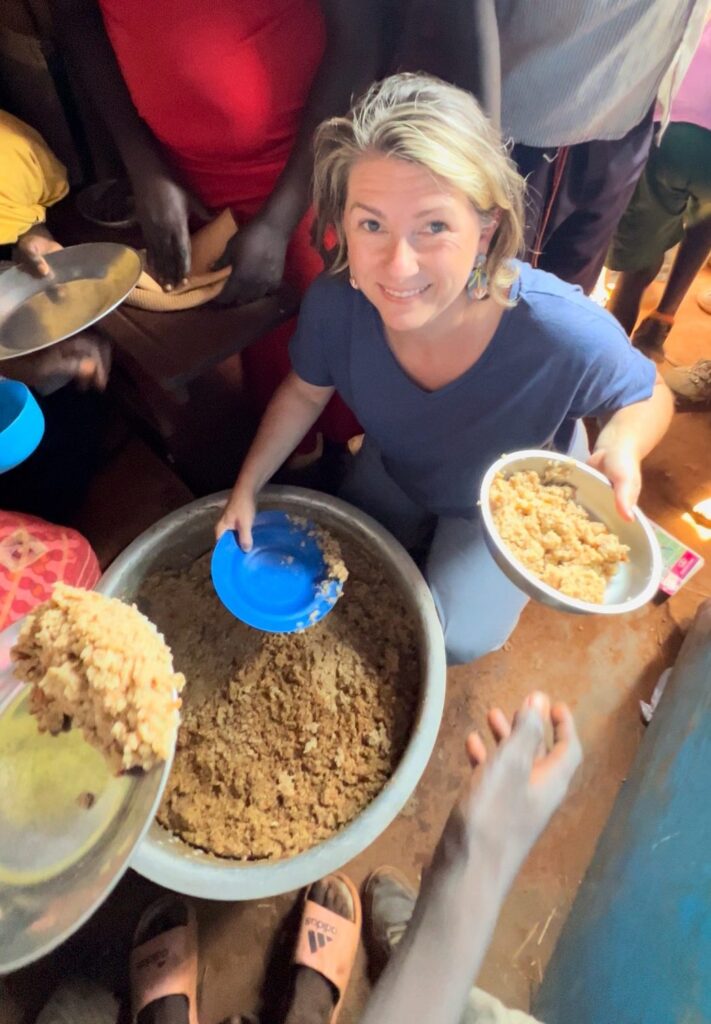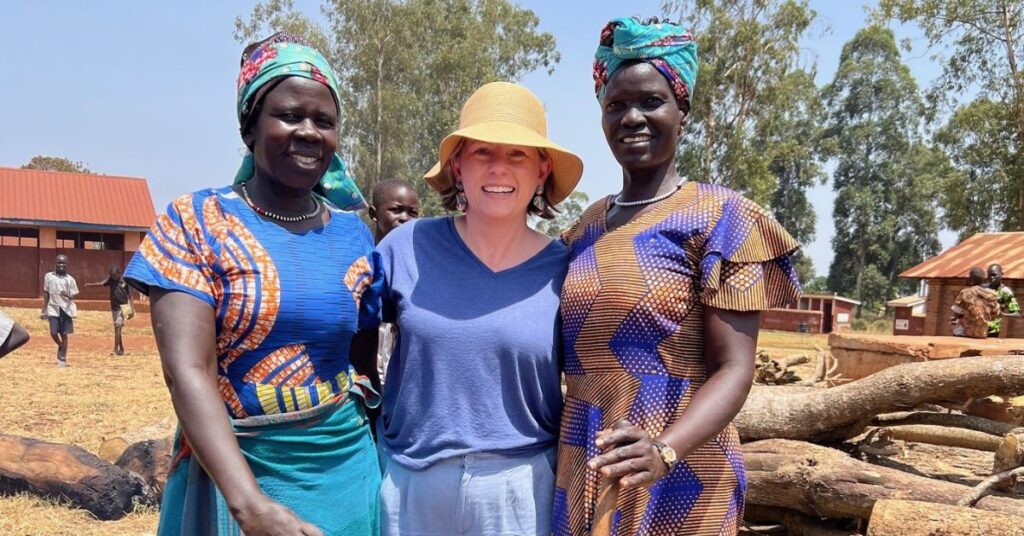By: Jodie McEwen
When Jodie McEwen was given the chance to visit Uganda with Feed The Hungry, she didn’t hesitate. The Australian mum was already a supporter of Take Away Hunger Day, sponsoring meals for children. But what she saw when she arrived at the school wasn’t just eye-opening, it was life-altering.
“I knew theoretically these meals were important,” she says. “But I didn’t know it in my heart. It wasn’t until I stood in the middle of a classroom almost bowled over by kids desperate to get their food that it really hit home.”
That simple lunch of fortified rice- often the only meal the children would eat all day- was served from a huge communal pot, cooked over a fire, and scooped out into whatever container a child could bring. For the lucky ones, it was a plate or bowl. For others, a scrap of paper torn from an exercise book. But the image that still haunts her?
“The kids who brought a plastic bag,” she says quietly. “Not even a new one. The kind you’d use to pick up after a dog. Reused. Filthy. But it was all they had.”
Jodie travelled to Kiryandongo, a refugee settlement near Uganda’s northern border, where thousands of children who have fled war in South Sudan now live and go to school. Though the school has partnered with Feed The Hungry for eleven years, the poverty is beyond anything most Australians could imagine. Families scrape by on less than a dollar a day. There’s no electricity, no clean water, no safety net.
“The schools there are just walls and a roof,” she explains. “No windows. No desks. Just timber benches, dust floors, and hundreds of kids packed in like sardines.”
But every day, those children show up. Not because school is compulsory, but because they know that education is their only chance at a better life. And because Feed The Hungry make sure there’s lunch for them.

That meal- a simple bowl of rice and vegetables- is more than just food. It’s a reason to come to school. It’s a reason to stay and learn. It’s the thing that keeps children in classrooms long enough to dream of something more.
“The teachers told us they can tell the difference straight after lunch,” she says. “In the morning, the kids are tired, distracted, barely able to keep their heads up. After they eat, they can focus. They can learn.”
But the desperation never fully disappears. Jodie remembers the moment one child was jostled in the lunch line and dropped his food.
“I saw him hit the dirt and scramble- hands in the dust- trying to scoop up single grains of rice. He was that hungry. And I thought, we wouldn’t even feed that to our dog.”
As a mum, she says it broke her.
“My kids will never know hunger like that. But these children live with it every single day.”
Feed The Hungry has been working in this region for over 20 years, partnering with local churches, schools, and community leaders to deliver daily meals and long-term hope. It’s simple, consistent support, and it’s changing lives.
“This isn’t about handouts,” she says. “It’s about giving kids a fighting chance.”
What surprised her most wasn’t the poverty. It was the joy.
“These kids have suffered unimaginable trauma. They’ve fled war zones, been shot at, lost parents, siblings and family members in the chaos. But they still laugh, they still play. And when that pot of food comes in, their eyes light up.”
Now she’s back home, Jodie tells anyone who will listen: you don’t have to travel to Uganda to make a difference. You can do it here and now.
“One meal a day might not sound like much. But I’ve seen it. It can change everything.”
Article supplied with thanks to Christian Media & Arts Australia.
Feature image: Used with permission from Jodie McEwan





